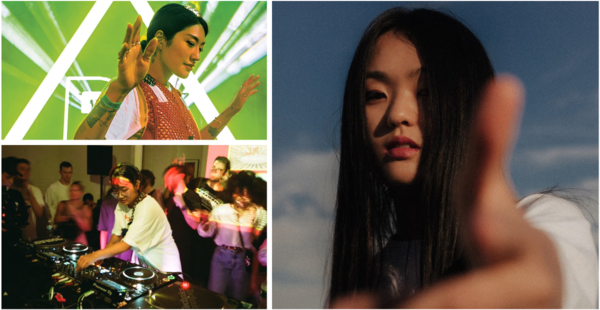Korean popular music, or K-pop, is nothing less than a sensation. No matter where you are, tracks by BTS, Blackpink, EXO are streamed everywhere around you — from radio stations to shopping malls. Although originating in the ’90s, K-pop has become extremely popular over the past five to ten years, serving as one of the driving forces of “The Korean Wave”. Nevertheless, criticisms of K-pop have also recently emerged, deemed by many as repetitive, overrated, and annoying. Such a stance has given way to the discovery of far less well-known and acclaimed music genres in Korea, one of which has just begun to take off on the international scene — Korean House.

The term “House music” is very broad, usually referring to subgenres of electronic dance music (EDM). Born over 40 years ago in Chicago, House has made its way to becoming the era-defining piece of music culture, particularly sticking to the minds of millennials and ’00s kids as the soundtrack of their adolescence. Upbeat and lively, House is defined by the names of DJs who brought it to fame — Avicii, Tiësto, David Guetta, and Calvin Harris, to name a few. The genre continues to hold its popularity, played frequently at night clubs and music festivals. EDM has had its impact on the Asian music culture as well, shaping the understanding and perception of the “western” sound. The integration of House by Korean DJs, namely Peggy Gou, Yaeji, and Park Hye Jin, has given rise to the now-increasingly popular Korean House. The three artists have been quite successful in promoting the Korean element across the House culture abroad. Interestingly, all three of them have had similar experiences on their way to top EDM charts, and they share matching thoughts on the development of the genre.
Perhaps the most well-known among the three DJs is Peggy Gou, a 29-year-old producer who has found her success in Berlin, the hotspot of underground techno. A future shooting star, Gou moved to London as a teenager to study fashion, which then blended with hundreds of hours spent studying German nightclub culture to create a unique image of a cosmopolitan performer. Gou is often described as “different” — the mix of vibrancy, easygoingness, and immense love for her Korean heritage and House music does indeed make her stand out in the crowd.
Playing across the ocean, another ambassador of Korean music is Yaeji. A Brooklyn-based DJ, she offers a unique perspective on song-writing and storytelling in House, frequently highlighting identity loss and conservative elements of Korean culture in her tracks. While studying for an art degree at Carnegie Mellon University, Yaeji picked up the passion for EDM in the college radio club. As a result of her intertwining interests in dance music and visual arts, Yaeji has realized the importance of not confining herself to a well-defined type, which she expresses as a peculiar fuse of upbeat Korean rap and House.
The most underrated among the “mothers of K-House” (and my personal favorite) is Park Hye Jin, a DJ from Seoul currently releasing Deep House pieces in LA. Unlike the previous DJs, Park had her first taste of fame while in Korea, moving to Melbourne shortly after releasing her genre-defining debut EP, IF YOU WANT IT. Park views music production as a prejudice-free playground, where she expresses her feelings in monotonous, minimalistic beats and carefree lyrics.
The first 10 to 15 minutes of K-House will leave the listener with a sense of oddness. On one side, we have a western motif, while on the other side, there is its Asian representation. K-House does not sound like anything else; it is unique and non-traditional. We can sense the DJs’ attempts to bend standards — instead of explicitly defining their music style, they take inspiration from the already-established western House culture to produce a “non-Korean” representation of who they are. At the same time, by using primarily Korean language in their lyrics, the DJs express their love and admiration for the Korean heritage and their cultural identities. Nevertheless, effective communication of their views to the rest of the world would require playing by the western rules: open-mindedness and courage for self-discovery.
It comes to no surprise that newer generations tend to sympathize with the exotic western standards; nevertheless, the nationalistic and at times conservative nature of the Korean ethnicity, accompanied by sheer beauty of the Korean culture, would prevent full identification with only one side. As a result, people search for the middle ground, a mix of Korea and the West — K-pop idols performing in English, Korean Hollywood actors, and music like K-House.
Changes lead to progress. Peggy Gou, Yaeji, and Park Hye Jin put unrestrained self-discovery above the fear of not fitting in, and as a result, it took them only a couple of years to originate a prosperous and unique musical style. Eccentric and atypical, still at its developmental stage and not fully discovered, K-House is worth a listen.

